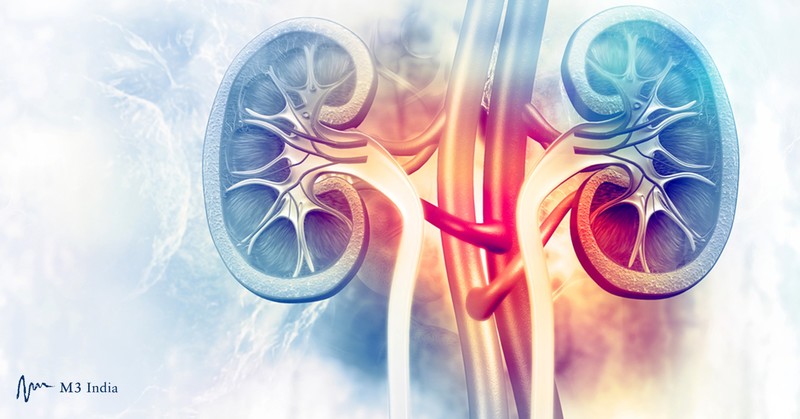Drug used to slow kidney disease found to be ineffective
MedicalXpress Breaking News-and-Events Jun 27, 2020
Following a major clinical trial, clinicians find the drug allopurinol does not prevent worsening of kidney disease. The Australasian Kidney Trials Network led a large, two-year study, known as CKD-FIX, to assess the effectiveness of allopurinol, in slowing the rate of decline in kidney function.

They found the drug is ineffective in treating the condition, despite up to 20 per cent of kidney disease patients being prescribed the medication.
Queensland Renal Transplant Service Medical Director and University of Queensland Professor of Medicine based at the Translational Research Institute, David Johnson, said until now there had been little robust evidence to demonstrate allopurinol's benefit in slowing the rate of decline in kidney function.
"We felt it was important to gather evidence of allopurinol's impact on patients with kidney disease who have never had gout," said Professor Johnson.
"In the CKD-FIX study, we compared the use of allopurinol to a placebo and found, to our surprise, that it made no difference to the rate of kidney function decline," he said.
"Based on these results we believe there is no benefit in prescribing this medication, unless there is an additional specific medical reason, such as gout. This much awaited, high-quality evidence will inform global clinical guidelines for patient treatment.
"It is important, though, that people with kidney disease who are already taking a medication like allopurinol to lower blood urate levels don't abruptly stop this treatment. They should discuss their kidney care management with their doctor first."
Lead Investigator-New Zealand, Dr. Janak de Zoysa from the University of Auckland and Waitemata District Health Board said trials like CKD-FIX were very important as they allowed doctors to optimise clinical practice.
"Trials which show existing treatments to be not as effective as anticipated, allow for those medications to be stopped or not started in the first place, reducing unnecessary healthcare costs," said Dr. de Zoysa.
Commercially available since the late 1960s, allopurinol helps the body reduce urate in the blood. High levels of the chemical are common among patients with chronic kidney disease, where it is associated with a higher risk of developing chronic kidney disease and its progression.
The George Institute for Global Health Senior Research Fellow and St George Hospital nephrologist, Associate Professor Sunil Badve said the widely held view that elevated blood urate levels were responsible for rapid decline of kidney function was probably wrong.
"Based on our study results, it appears that elevated blood urate levels are most likely an indicator of reduced kidney function rather than a cause of reduced kidney function," said A/Prof Badve.
The CKD-FIX study ran across 31 hospitals in Australia and New Zealand, with more than 369 patients -with stage 3 or 4 chronic kidney disease who were at increased risk of further progression—taking part in the trial.
The results from the study were published in The New England Journal of Medicine.
In the paper, the study authors reported a 35% reduction in blood urate levels, which was maintained throughout the two-year study period for patients prescribed allopurinol. Kidney function, however, declined at similar rates for two treatment groups; allopurinol -3.33 mL/min/1.73 m2/year (95% CI -4·11 to -2·55) and control -3.23 mL/min/1.73 m2/year (95% CI -3·98 to -2·47). There was no difference in the quantity of protein in the urine and blood pressure between the groups.
Approximately 1.7 million Australians and 400,000 New Zealanders aged 18 years and over have chronic kidney disease.
-
Exclusive Write-ups & Webinars by KOLs
-
Daily Quiz by specialty
-
Paid Market Research Surveys
-
Case discussions, News & Journals' summaries